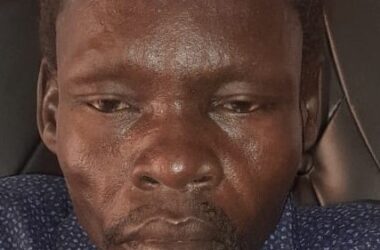
South Sudan is a young nation not only in its years of independence but also in the makeup of its people.
The majority of its population is under the age of thirty, and with every passing year, thousands of young men and women leave schools and universities ready to work.
Yet, instead of finding employment that allows them to build careers, contribute to development, and support their families, most are left stranded with no opportunities. In the absence of jobs, the boda boda has become the last and only option.
Unemployment in South Sudan is not simply a challenge; it is a crisis.
A weak economy, lack of industries, and limited investment have left young people with very few opportunities to enter formal work.
Government jobs are scarce and already overwhelmed by those seeking them, while the private sector remains too small to accommodate the growing number of job seekers.
Each year, new graduates join the long line of unemployed youth.
Many spend years applying for positions that never materialize.
Families invest heavily in education with the hope that it will open doors for their children, only to watch them return home with no work.
For these youth, the only visible path to survival is riding a boda boda.
The boda boda industry has become the most common refuge for unemployed youth in South Sudan.
Across the streets of Juba, Wau, Bor, and Malakal, motorcycles dominate the roads, carrying passengers to markets, offices, and neighborhoods.
What was once seen as a small business has now turned into the main source of income for a whole generation.
Boda boda riding provides daily cash, which is vital in a country where families live hand to mouth.
Riders can earn something each day, enough to buy food or pay rent.
This is what makes it appealing to many youth: it is immediate and available.
But while it provides survival, it does not provide progress.
The work of a boda rider is full of challenges.
The roads are poor, traffic is dangerous, and accidents are common. Riders face long hours under harsh weather, and at night they are exposed to insecurity, theft, and violence.
Most do not even own the motorbikes they ride; they rent them from owners and must hand over a large part of their earnings.
At the end of the day, what remains is often too little to save or invest.
This cycle of daily survival traps the youth in a situation where they are constantly working but never moving forward.
It is a form of employment that keeps them alive today but offers no hope for tomorrow.
One of the most painful aspects of this crisis is the number of educated youth who end up on motorcycles.
Young men and women with diplomas and degrees are reduced to work that does not match their skills or aspirations.
Years of study and the sacrifices of families are wasted as these graduates abandon their professions before they even begin.
The country is losing the potential of an entire generation.
Instead of building schools, hospitals, farms, and businesses, young South Sudanese are forced into a single line of work that cannot carry the weight of their dreams.
The dependence on boda boda riding has deep social consequences.
Families are forced to lower their expectations, and young people delay important life decisions because of financial instability.
Many cannot marry or build households because their income is too uncertain. Others are unable to support relatives who depend on them, creating frustration both for the riders and their families.
This widespread joblessness also leaves young people vulnerable to negative influences.
With little hope for advancement, many become frustrated and disillusioned. A nation cannot progress if its young people spend their most energetic years circling the streets on motorcycles, with no chance to use their talents in more productive ways.
South Sudan’s future rests on its youth, but if unemployment continues at its current level, the country risks raising a lost generation.
The boda boda economy is not strong enough to absorb the millions of young people entering the labor market each year. It can only provide temporary survival, not long-term prosperity.
If left unaddressed, this situation will create even greater challenges for the country. F
Frustrated youth will remain dependent on unstable work, and their frustration may lead to instability in society. Instead of becoming drivers of peace and development, they may become victims of neglect.
For South Sudan to overcome this crisis, the creation of jobs for youth must become a national priority.
Investment in industries such as agriculture, construction, and small-scale manufacturing could create thousands of opportunities.
Vocational training centers can equip young people with practical skills, allowing them to find or create work outside the boda boda sector.
Small business support and infrastructure development could also open doors for youth employment.
These efforts require commitment and vision, but without them, the cycle of joblessness will continue to trap the country’s most valuable resource its young people.
The boda bodas that fill the streets of South Sudan’s towns and cities are more than just a means of transport.
They are the clearest evidence of a nation where the youth are left without choices.
They represent both resilience and despair: resilience because young people refuse to give up, and despair because their true potential is being wasted.
South Sudan cannot afford to let its youth remain stuck in this cycle.
If opportunities are created, the energy and creativity of this generation can transform the nation.
Until then, the motorcycles will continue to roar, carrying not only passengers but also the unfulfilled hopes of the country’s future leaders.
The writer, Deng Chol is a concerned citizen and can be reached by dengolesmo5@gmail.com



